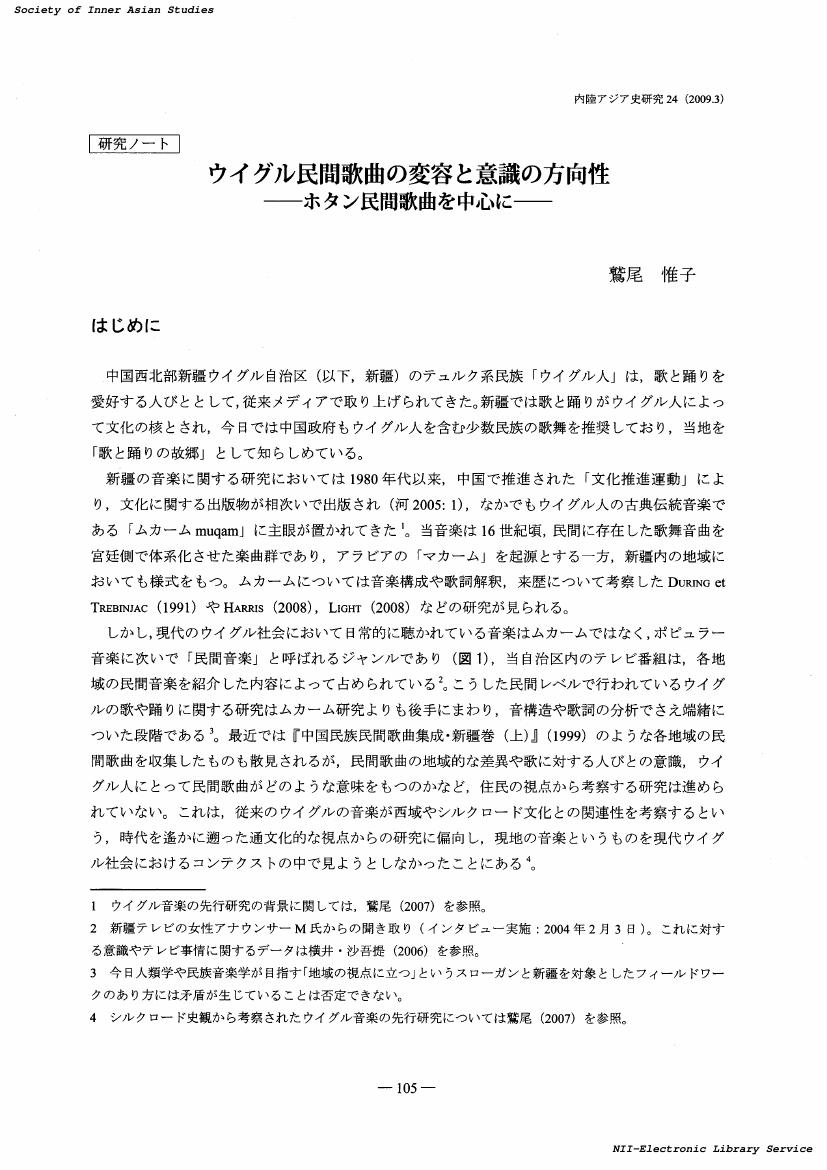2 0 0 0 OA ウイグル民間歌曲の変容と意識の方向性 : ホタン民間歌曲を中心に
- 著者
- 鷲尾 惟子
- 出版者
- 内陸アジア史学会
- 雑誌
- 内陸アジア史研究 (ISSN:09118993)
- 巻号頁・発行日
- vol.24, pp.105-122, 2009-03-31 (Released:2017-10-10)
1 0 0 0 IR 中国新疆・ウイグル人の民間芸能をめぐる多様性と変化に関する民族音楽学的研究
In this article, I take each essences of music and dance of Uyghurs' forkrore in the Xinjiang Uyghur Autonomous Region, in order to illustrate the global flows of sounds, preservation or restructuring of tradition and culturemeanings, which influence Uyghur folk musics. My approach to this ethinomusicological study was influenced by "The invention of Tradition" writen by Hobsbowm & Ranger. In one side, I have the desire of yearning for the old memory for not being cultural ditionally preserved, against the change and the re-creation of it. The disseminatory power of media (Cassets and VCDs) facilitates the global movement of both musical sounds and political ideas. I argue, using examples of Uyghur folk songs and Uyghur folk dances and the performance, that these sounds and meanings are radically adapted and re-signified in the construction of Uyghur identity and cultural politics, in a complex interplay between the global, national and local, and between tradition and modernity. I discuss the gendered expression of Uyghur nationalism in popular song through the iconic figure of the weeping mother, demonstrating the ability of expressive culture (here music) to reveal underlying or underpinning political trends. In this article,it aims how to change for the culture of a certain community, in the society and nation, while developing diversity in a modern globalization society, and how to clarify whether to reflect it in the recognition of local peoples. Especially, I attention newly two local oasis' music, songs and dances, which had recently, to attention different directionality, in Uyghur cultures. More there, I think it be remained the essence of musical element, even if it select either preservation or the restructuring, of the tradition. Uyghur music embraces several distinct regional styles. So I will find direction essence, and the relation between music and peoples of Uyghur society.
